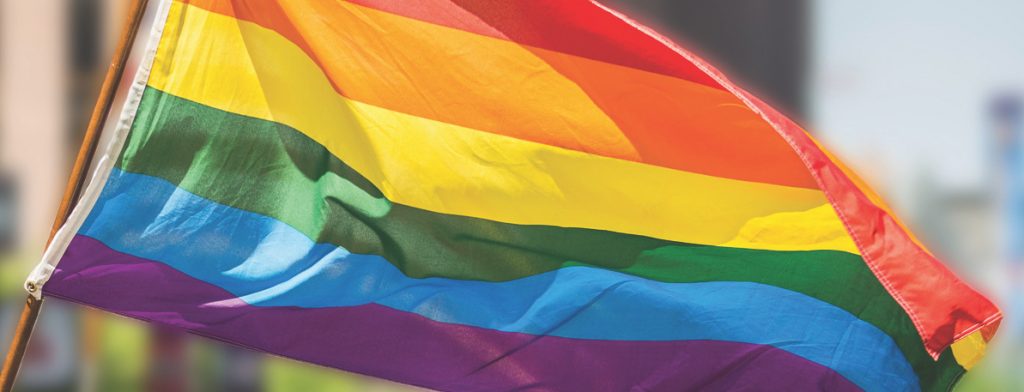Introducing new J-Pride Coordinator Miriam Graham

J-Pride is JFCS’ program that works to engage Minnesota based Lesbian, Gay, Bisexual, Transgender, and Queer (LGBTQ) Jews and their allies to come together for social events, community gatherings, celebrations, and educational opportunities. (For more information on upcoming events and programming, “like” J-Pride on Facebook.) Miriam Graham, J-Pride’s new Program Coordinator, recently spoke about their goals for the program.
Why did the J-Pride Coordinator position appeal to you?
I’ve lived in Minneapolis for almost five years, and I’ve been a participant and leader at J-Pride events since I moved here, as well as organizing my own Queer Jewish spaces. When I heard that this job was opening up, I was thrilled—here’s a way I can do what I’m already doing, but professionally and with the resources I need.

What have been some of the biggest successes and challenges for J-Pride during this difficult year?
Oy, training in on a new job remotely has been difficult, to say the least. Not being physically at Pride I think was hard for a lot of reasons for participants and for us. But despite the trickiness of isolation, J-Pride has had really great success with our weekly Havdalah event with Shir Tikvah, with around 20 participants weekly over the last four months.
What are your goals for J-Pride, both in the short-term and the long-term?
Right now, all I’m thinking about is the High Holidays! We’re trying a combination of Zoom offerings, as well as distanced in-person events outside. Moving forward, I’m interested in finding alternative ways to gathering in the community safely beyond Zoom calls, exploring ritual innovation, doing more professional development and staff trainings, and reaching out to community members who aren’t as well represented in our events. I’d like to strike a good balance between ritual/religious, social/secular, and educational events.
Anything else you would like to add?
At the intersection of Queer and Jewish identities – not to mention those participants who self-identify as being mentally or physically disabled, non-white, or other marginalized identities – J-Pride participants face oppression on many levels. More than anything, I want our participants to feel supported, uplifted, taken care of, and listened to. Especially in this changing global moment, I want people to know that J-Pride and JFCS as a whole is a resource people can turn to, and that we’ll be here to help our participants however we can.
